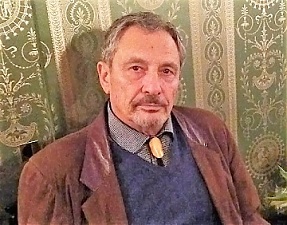Editor's note
International Internet Magazine. Baltic States news & analytics
Monday, 16.02.2026, 04:17
Working holidays for the Baltic’s decision-makers
 Print version
Print version |
|---|
Two
main issues came up from an extraordinary summit a couple of weeks before: the
next EU 2021–2027 budget of €1,074,3 billion was agreed upon by the European
leaders and a rescue package of € 750 billion (on top of the enormous budget),
some in loans (€360 bn) and some in subsidies (€390 bn).
In
this way the financial resources have been allocated to tackle the economic and
social consequences of the pandemic crisis, although the “rescue size” has not
been up to the two institutions: the Commission’s expectations in the draft and
the proposals from the European Parliament.
More
on the summit in: https://www.integrin.dk/2020/07/28/after-extraordinary-july-2020-summit-a-second-opinion/
National
“strategic governance” shall concentrate on combining the EU priorities with
that of the member states’ growth patterns. Both the EU institutions and the
member states have to re-assess their traditional growth patterns to adequately
react to the present and possible future chocks. The EU as a whole as well as
the Baltic States and Latvia have to elaborate resilient economies’ structures adequate
to modern global and European challenges.
The
national elites are, of course, fully aware of the “assignment’s” difficulties
for governance system, existing public institutions as well the whole nations:
the tasks are really extraordinary and complex.
But
the Baltic States have had already numerous difficult periods during a century
of independence from which they emerged democratic and economically strong.
Presently, the Baltic States’ leaders are having both the political will and
peoples’ support to overcome numerous existing difficulties for the benefit of
the people.
Decision-makers
cannot wait longer: their patriotic task is to react quickly and forcefully…
A “business plan”
for decision-makers
Analysing the outcomes of the summit and
looking into the EU’s “political kitchen”, here are some hints for the Baltic
States elites and governing institutions.
=
Modern EU financial issues and the
Baltic States’ growth agenda.
1/
Making known for a wide public the approved financial “packages”: the MFF for
2027 and a rescue package to assist the states in need;
2/
Showing in the social media the exact financial resources allocated to the
Baltic States;
3/
Defining present challenges for all walks of life in the Baltic States affected
by the pandemic: e.g. in consumption, energy, transport, culture, education,
etc.
4/
To correlate the EU and the states’ national investment strategies and
priorities
=
Perspective reforms in the Baltic States
1/
While a particular attention shall be given to rescue measures in tackling the
pandemic aftermath, the national strategies shall cover a more distant
perspective;
2/
Keeping in mind the European political priorities for 2017 (6+1) in formulating
national long-term strategies and investment patterns;
3/
Increasing export potentials and reviewing the composition of internal
consumption to be covered by national producers;
4/
Cooperation among the three Baltic States is becoming a great additional
resource: the contacts among various socio-economic sectors shall be
facilitated.
= Baltic
States’ socio-economic development
in the post-COVID period
1/
Resilient growth shall become a strategic perspective with new attention to
research on the “COVID-economics”;
2/
Resuming scientific analysis of modern national political economy in the
Baltics with a particular attention to the welfare society’s vision and
priorities;
3/
Assisting national entrepreneurs in all possible ways: e.g. by researching the
“business technology” directions;
4/
Looking into new approaches to labour/trade unions (in association with the
tripartite representatives: government, as well as employees and employers’
associations);
5/
Analysing potentials of the perspective education trends and “getting new
skills” programs;
Bottom-line. These
decision-makers’ efforts are being aimed at raising the so-far “low-income”
Baltic States into a higher levels with increasing attention to citizens’
happiness. However, to rely upon the Union’s financial support from a “great
rescue package” is not any more a sure thing: the EU funds for science,
research, education, innovation (?), climate, migration and health programs (?)
have been cut down. Therefore, the main attention shall be given to a more efficient
use of existing national resources: thus a hard summer vocation time for
decision-makers…











